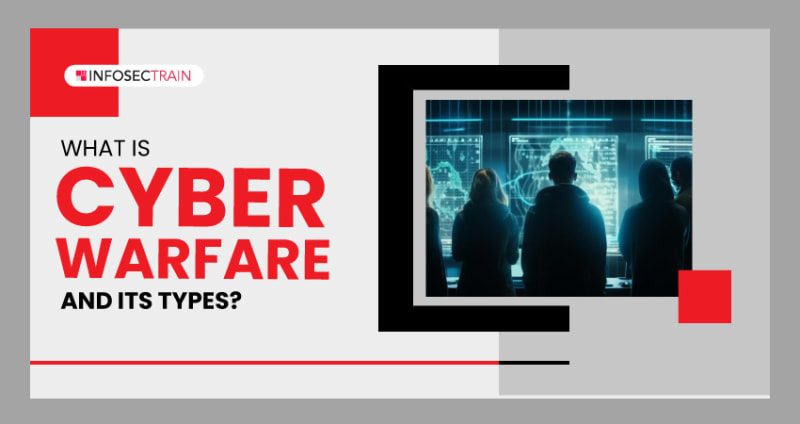In our modern world, conflicts have expanded beyond the physical battlefield due to the interconnectedness of our society. The digital realm has emerged as a new and formidable battleground where governments, organizations, and individuals can engage in conflicts that wield significant impacts. This dynamic and constantly evolving virtual combat domain is known as cyberwarfare. In this blog, we will look at the concept of cyberwarfare, discussing its diverse types and their impact on our modern society.
What is Cyberwarfare?
Cyberwarfare involves the strategic use of digital technology and computer systems to initiate a series of cyber offensives intending to conduct hostile activities against a nation or state. Unlike traditional warfare, which heavily relies on physical force, cyberwarfare operates solely within the digital space. It focuses on infiltrating and compromising an adversary's networks, vital infrastructure, and information systems. The primary objective of these operations is to induce disruption, inflict damage, or achieve unauthorized access to critical systems, all with the aim of securing a substantial strategic edge.
Types of Cyberwarfare
Below are some of the most common types of cyberwarfare:
• Cyber Espionage: It entails unauthorized access to a target's systems or networks to gather intelligence, such as confidential information, intellectual property, and government secrets.
• Cyber Propaganda: It entails the distribution of persuasive narratives, misleading information, and fake news across social media platforms to shape and manipulate public opinion.
• Critical Infrastructure Attacks: These entail attacking vital services such as the water supply and transportation networks to cause chaos.
• Cyber Sabotage: It entails deliberately disrupting or damaging a target's vital infrastructure, such as its power grids, communication networks, water supplies, and transportation networks.
• DoS or DDoS Attacks: These involve flooding a target's servers or networks with an extensive traffic volume, making systems inaccessible.
• Supply Chain Attacks: These involve targeting software or hardware providers to compromise multiple users' security.
• Ransomware Attacks: These typically encompass data encryption with subsequent demands for ransom in exchange for decryption keys, often used to target individuals, corporations, and governmental entities.
Implications of Cyberwarfare
• The growth of cyberwarfare has several significant implications for national security, international stability, and individuals' daily lives.
• It can compromise a nation's security by infiltrating military systems, intelligence agencies, and critical infrastructure.
• It imposes significant costs, including damage to businesses, intellectual property theft, and cybersecurity expenses.
• It can strain international relations, leading to diplomatic tensions and disputes between nations.
• It can disrupt essential services, impacting citizens' daily lives and potentially endangering public safety.
Feel free to checkout the cybersecurity blogs:
● Top 30 Cybersecurity Terms You Need to Know
● Top Cybersecurity Trends in 2024
● Top Reasons to Explore a Career in Cybersecurity
● What is a Zero-Trust Cybersecurity Model?
● Top Tools Covered in Cybersecurity Expert Training Course
How can InfosecTrain Help?
At InfosecTrain, we offer a wide range of cybersecurity training courses across multiple domains to empower individuals with the knowledge and skills necessary to excel in various aspects of cybersecurity. We offer courses in ethical hacking, penetration testing, and threat analysis, equipping individuals with expertise in identifying security vulnerabilities and countering cyber threats, making them better prepared to understand, defend against, and potentially engage in cyberwarfare activities.



Top comments (0)